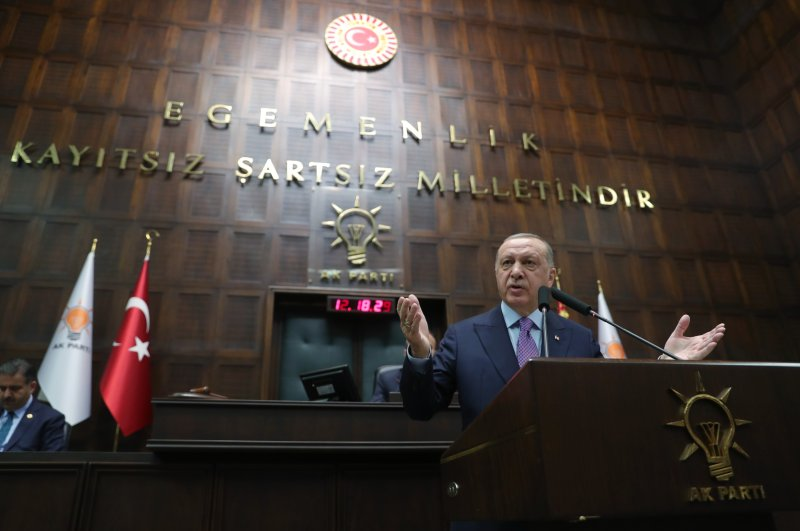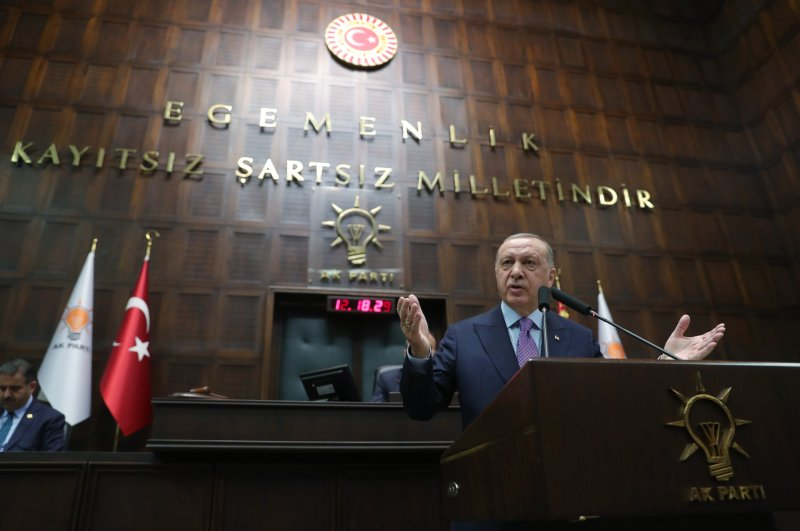Address
304 North Cardinal St.
Dorchester Center, MA 02124
Work Hours
Monday to Friday: 7AM - 7PM
Weekend: 10AM - 5PM
Address
304 North Cardinal St.
Dorchester Center, MA 02124
Work Hours
Monday to Friday: 7AM - 7PM
Weekend: 10AM - 5PM


In April 2017, Turkey held a referendum to change its parliamentary constitutional republican regime into a presidential republic where the power of the Grand National Assembly of Turkey (TBMM) decreased although the number of MP’s increased from 550 to 600. The office of prime minister was abolished and the parliament lost its check-balance power over the government. The effect of these amendments became more visible in March 2021. Turkey pulled out of the Istanbul Convention which aims at protecting women against domestic violence, dismissed the Central Bank Governor, Naci Ağbal by a presidential decree. All those are seen as signs of Turkey shifting away from bureaucratic democracy into a president-oriented regime.
The opposition criticized President Erdoğan for not having legitimacy for pulling out from an international convention that passed in the parliament. Women rights activists protested the pull-out action and that brought police violence against protesters. The government and AKP (Justice and Development Party), the president’s ruling party, announced that the convention undermines the cultural values of Turkish society and promotes homosexuality whereas protecting women already exists in the tradition. Two main debates appear here, firstly, does the president have the right to pull Turkey out of an international treaty that was approved by the national assembly; and the second, women’s rights and their protection in Turkey. For the first, the parliament is still the legislative organ of the country while the president is the head of execution with the right to issue decrees. This new regime seems chaotic, and inaction the president possesses control after the check-balance duty of the parliament was diminished. Therefore, although the president is not given such absolute power over international affairs, the inefficient parliament provides room for such actions. The latter, on the other hand, contradicts the official claims by the high AKP/government members. According to the We Will End Femicide Platform, 300 women were murdered in 2020 while 171 deaths were suspicious. Nevertlethes, the Turkish government’s claims seem unrealistic and that brings us to understand Erdoğan’s goal by pulling Turkey out of the treaty.
Turkey’s pulling off from the Treaty by a presidential decree carried the discussion to another level after the Speaker of the Grand National Assembly of Turkey, Mustafa Şentop, stated that the country could pull out from any international agreement by a presidential decree, such as Montreux Agreement (1936), securing the straits and the Black Sea. Although Montreux is now almost ninety years old, it is still in function and approves Turkish control over the straits and prevents heavy naval race in the Black Sea by limiting tonnage and duration of stay for the third-country naval ships. However, the time of this statement bears importance as Turkish public opinion is also concerned by the ‘Kanal Istanbul’ which is a channel project parallel to the Bosphorus connecting the Black Sea and the Marmara Sea. While the channel project is criticized for potential environmental and resource issues, 104 retired admirals published a midnight declaration highlighting the importance of Montreux and their concern that Turkey and the peace in the region would be challenged if Turkey pulled out from it. The declaration caused an immediate reaction from Erdoğan’s close cadre, the admirals were accused of launching a coup d’etat and that anti-democratic military action could not be excused, senior AKP officials stated. Some admirals, including Cem Gürdeniz who is the person behind Turkey’s ‘Blue Motherland’ thesis, were arrested. The main opposition party, CHP (Republican People’s Party) criticized the arrests by claiming that those admirals are the experts in navy and international sea conventions, so their opinion and consultancy are essential for a government to rule the country within the best interest.
In November, by a friday night decree, Naci Ağbal was appointed as the governor of the Central Bank, and he was displaced again by another friday night decree after the Bank announced an increase in interests to protect Turkish Lira. Erdoğan claims that the higher interest, the higher inflation which devalues the currency. However, financial experts warn that the Central Bank must be independent to protect the economy which is quite fragile in the case of Turkey. Indeed, the value of the Lira dropped dramatically just the day after, and once more the regime is questioned by the opposition and financial experts and institutions for not being democratic enough. Such concerns showed their effect as the escape of foreign investors, so Turkey’s need for foreign currency is becoming a more serious concern in addition to Lira’s dramatic value loss.
Another main debate occupying Turkish public opinion is the closure case of the Kurdish-based HDP (People’s Democratic Party) whose members are claimed for propagating the PKK (Kurdistan’s Workers Party), the terrorist organization Turkish Armed Forces are fighting within southeastern Turkey since 1984. One of the former leaders of HDP, Selahattin Demirtaş, has been held in jail since November 2016 with the same accusation now the party is being challenged. Similar accusations related to terrorism propaganda are made for the party itself, so the attorney general office commenced a case for the closure, but the Constitutional Court returned the case. According to the Court, the links between terrorist activities and the party are not clearly presented, and the claim that HDP is a nest for terrorist activities is weak. After the return of the case by the high court, the leader of MHP (Nationalist Movement Party), Devlet Bahçeli, suggested the closure of the Constitutional Court as well as HDP. However, after forming the government in the early 2000s, Erdoğan’s AKP had taken a position against political party closures because senior party cadre had experienced party closures during the 1990s under Necmettin Erbakan’s Refah (Welfare) and Fazilet (Virtue) Parties. Therefore, AKP, in the early 2000s, worried that the Court could close off the party one more time, so they demanded a referendum for restructuring the Constitutional Court and preventing party closures by claiming such actions were anti-democratic.
In conclusion, with the new presidential government system allowing the president to issue decrees without any need of parliamentary approval, Turkey has slipped away from the early AKP democratic regime. In a neoliberal world order in which individual freedoms and rights are much more essential than they have ever been, Turkey under Erdoğan’s leadership has been slipping away to constitute an effective position for its own citizens. Therefore, since 2015 Turkey probably has been experiencing its biggest immigration rate since the 1960s when hundreds of thousands of Turks moved to Germany to work. Lack of independence for individuals and institutions causes the devaluation of Lira, hardship in life, high volume of educated human source loss, and a more vulnerable economy.